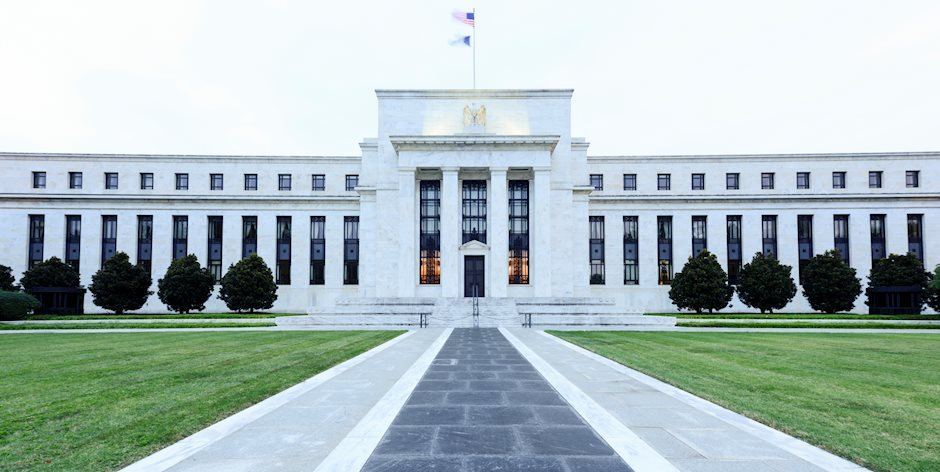Crucial week with Fed, BoE and ECB policy meetings

Markets
Last Friday’s session was one to rapidly forget about. December US PCE deflators and spending data printed near consensus as could be expected following the Q4 GDP release earlier that week. Final figures from University Michigan consumer confidence showed a downward revision to 1y (3.9% from 4%) and 5-10y (2.9% from 3%) inflation expectations. The data didn’t alter market thinking/repositioning going into this crucial week with Fed, BoE and ECB policy meetings. Daily changes on the US yield curve ranged between +1.9 bps (2-yr) and -1.9 bps (30-yr). German Bund yields added up to 2.8 bps with the belly of the curve underperforming the wings. 10-yr yield spreads vs Germany widened up to 2 bps with Italy underperforming (+4 bps). EUR/USD held within its extremely narrow weekly range (1.084-1.092) with a weekly close of 1.0868. The pair last week failed to take out 1.0942 resistance (50% retracement on 2021-2022 decline). The litmus test will follow this week. EUR/GBP closed the week at 0.8774, coming off intraweek highs around 0.8850. The high 0.88 resistance zone survived earlier this month, but the rationale is the same as for EUR/USD: the real test will follow this week. Main US and European stock markets ended Friday marginally higher with Nasdaq again exception to the rule (+1%).
Chinese markets reopen from Lunar NY holiday’s with relatively small gains (<1%). Core bonds and EUR/USD are going nowhere. The Japanese yen is somewhat stronger (USD/JPY 129.50) after a panel of experts urged the government and central bank to revise their joint policy statement and make an inflation target a longer term goal. One of the members, who’s also on the shortlist to become a deputy BoJ governor in Spring said that the normalization of yield functions and the bond market would likely mean a need to comprehensively rethink monetary policy. The episode once more adds pressure on the BoJ to end its decade-long monetary easing.
Today’s eco calendar contains amongst others Spanish and Belgian inflation numbers. They are a prelude running up to tomorrow’s German and French data and Wednesday’s EMU figures. Consensus expects both headline and core inflation gently moderating, respectively from 9.2% Y/Y to 9% Y/Y and from 5.2% Y/Y to 5.1% Y/Y. Together with tomorrow’s Q4 GDP data (-0.1% Q/Q expected), they provide final input for Thursday’s ECB meeting – though they won’t alter the outcome (+50 bps rate hike). This week’s US eco calendar is well-filled as well with consumer confidence, Chicago PMI, ADP employment change and manufacturing ISM before Wednesday’s FOMC meeting and payrolls and non-manufacturing ISM afterwards. This complex of triggers makes heavy weather for market sailing. Our main view is that core bonds will sell off with German Bunds underperforming US Treasuries. The faith of EUR/USD 1.0942 will depend on whether constructive risk sentiment holds or not.
News and views
Rating agency S&P downgraded both Hungary’s long- and short term foreign and local currency debt ratings from BBB to BBB-. According to S&P: “the downgrade follows a series of economic shocks to Hungary in the context of the Covid-19 pandemic and the Russia-Ukraine conflict, which have impaired the policy flexibility of fiscal and monetary authorities”. S&P expects “fiscal consolidation will be difficult given still-elevated energy costs, a rising interest bill, and a challenging economic outlook”. With respect to the availability of EU funds, the rating agency’s baseline expectation is “that Hungary and the EU will reach an agreement and that no substantial part of EU funds will be cut”. The outlook for the credit rating was put at stable as S&P expects “that Hungary’s economy will avoid a substantial economic downturn over the next two years and weather the indirect effects of the Russia-Ukraine war, despite challenges to fiscal and monetary policy flexibility”. S&P expects 0.3% growth for Hungary this year.
S&P also affirmed Australia’s AAA long term rating. The outlook for is stable. S&P forecasts that the government deficit will be less than 2% between 2023 and 2026. It expects the net general government debt to remain modest at about 30% of GDP over this period. According to S&P, Australia will likely avoid a recession and expand over the next three years, as the unemployment remains low and as it profits from high commodity prices. S&P still expects sound economic growth of 1.5% in the fiscal year ending June 2024 even as monetary tightening kicks in.
Author

KBC Market Research Desk
KBC Bank

















